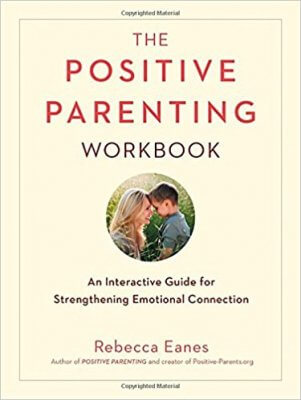
How is self-esteem related to unconditional love? How do parents show approval for kids as human beings even as they must often show disapproval for children’s behavior?
In the article, Does Self-Esteem Function as an Emotional Immune System?, Guy Winch, PhD, asserts that a variety of studies have begun to demonstrate that self-esteem can arm us with emotional resilience as well as insulate us from stress and anxiety. Brain scans have shown that rejection is more painful for people with low self-esteem than for those with high self-esteem. A child with higher self-esteem is better prepared to manage failure, rejection, and stress and has increased self-control.
It may surprise you to learn that self-esteem doesn’t come from giving children trophies and stickers or by telling them they’re the greatest, smartest, or most wonderful people on the planet. Instead, research shows that self-esteem grows from feeling capable and understood.
Unconditional love is important to the emotional health and positive self-worth of our children. Psychologist Carl Rogers understood the need for unconditional love, or what he called unconditional positive regard. He believed that childhood experiences are one of the two primary sources that influence a person’s self-image, the other one being evaluation by others. Self-worth, according to Rogers, is first formed from the interactions the child has with his or her mother and father. He also believed that we need to feel valued and respected, be shown affection, and feel loved, and he made the distinction between unconditional and conditional positive regard.
In conditional positive regard, a child receives approval only when performing to the parents’ expectations of behavior. If approval is withdrawn when a child makes a mistake, she is loved not for who she is but on the condition that she behave in a way that makes her parents happy. Of course, parents don’t really stop loving their misbehaving children, but from the child’s perspective, approval and love are indistinguishable. This isn’t to say that a parent must show approval for the child’s behavior at all times. That would be irresponsible parenting. It’s to say that we must show approval for the person even as we must show disapproval for the behavior.
Think of discipline methods used by you or your friends. Do they convey conditional positive regard? This is actually what time-out draws its strength from – the child’s fear of disapproval and separation. Time-outs work because they alarm a child into behaving so as not to lose Mommy’s or Daddy’s love. That’s really quite sad when you think about it. Shame and humiliation are becoming trendy tactics that often earn a parent a pat on the back or five minutes of fame. Think about children who are forced to walk in public wearing signs with negative messages, or the ones humiliated on social media by their own parents. These trends are harming the emotional health of our children.
Improving Self-Esteem
Consider some of the questions of a child’s heart:
- Am I accepted?
- Do you love me even when I break a rule or show defiance or have an epic tantrum? You say you do, but do I feel it?
- Are we connected?
- Do you see my light, even when I’m not shining it?
- Can I trust you with my big feelings?
- Do you respect me even though I am little?
- Can you handle me when I am at my worst?
Unconditional positive regard asks, “Will you show me that you really love me through it all?”
Dr. Gordon Neufeld, of the Neufeld Institute, conveys this message perfectly. He says, “Unconditional parental love is the nutrient for the child’s healthy emotional growth…Ways have to be found to convey the unacceptability of certain behaviors without making the child herself feel unaccepted.”
So here’s the big question: How do we convey the unacceptability of certain behaviors without making the child herself feel unaccepted? First we have to release the fear that we are being “too easy” on children by showing love, warmth, and affection even when they bring their “least likable characteristics” or behaviors.
We have to drop the fear that our love will reinforce negative behavior and accept that it gives our children emotional and psychological rest and fosters emotional health.
Next, we change our language. We have to leave our personal criticism and attacks.
No shaming.
No humiliation.
State what is wrong with the behavior, not what is wrong with the child. And very important, show him how he can save face, fix his mistake, make amends, and do better. Repair afterward by connecting with him and making sure he knows that you still see his light and that you still believe in him. When he assured that you see his worth, it helps him see it, too.
For example, rather than saying, “Your room likes like a pigsty. Why are you so messy?” you can simply say, “It looks like your room needs tidying up.” Instead of “Quit being stingy and share your toys,” try simply stating, “It looks like your friend wants a turn.”
You may need to also change your approach. Instead of withdrawing, you engage. Rather than sending your child away, you invite her closer. Instead of hardening, you soften. This helps her engage, connect, and soften. This simple shift enables us to reach our children’s hearts with the lessons we need to teach.
A central belief in positive parenting is that showing a child that your boundaries are fixed, consistent, and unshakable proves your ability as a leader and builds respect. Showing that your love is also fixed, consistent, and unshakable build’s a child’s self-worth.
Editor’s Recommendation
 Rebecca Eanes’ inspiring new guide, The Positive Parenting Workbook, walks readers through the process of charting a path toward greater emotional awareness, clear communication, and joyful parenting! Filled with encouraging prompts and plenty of room to record your progress, this interactive workbook/journal is for anyone who wants to deepen their relationships with their children and loved ones.
Rebecca Eanes’ inspiring new guide, The Positive Parenting Workbook, walks readers through the process of charting a path toward greater emotional awareness, clear communication, and joyful parenting! Filled with encouraging prompts and plenty of room to record your progress, this interactive workbook/journal is for anyone who wants to deepen their relationships with their children and loved ones.
Published: March 3, 2018



